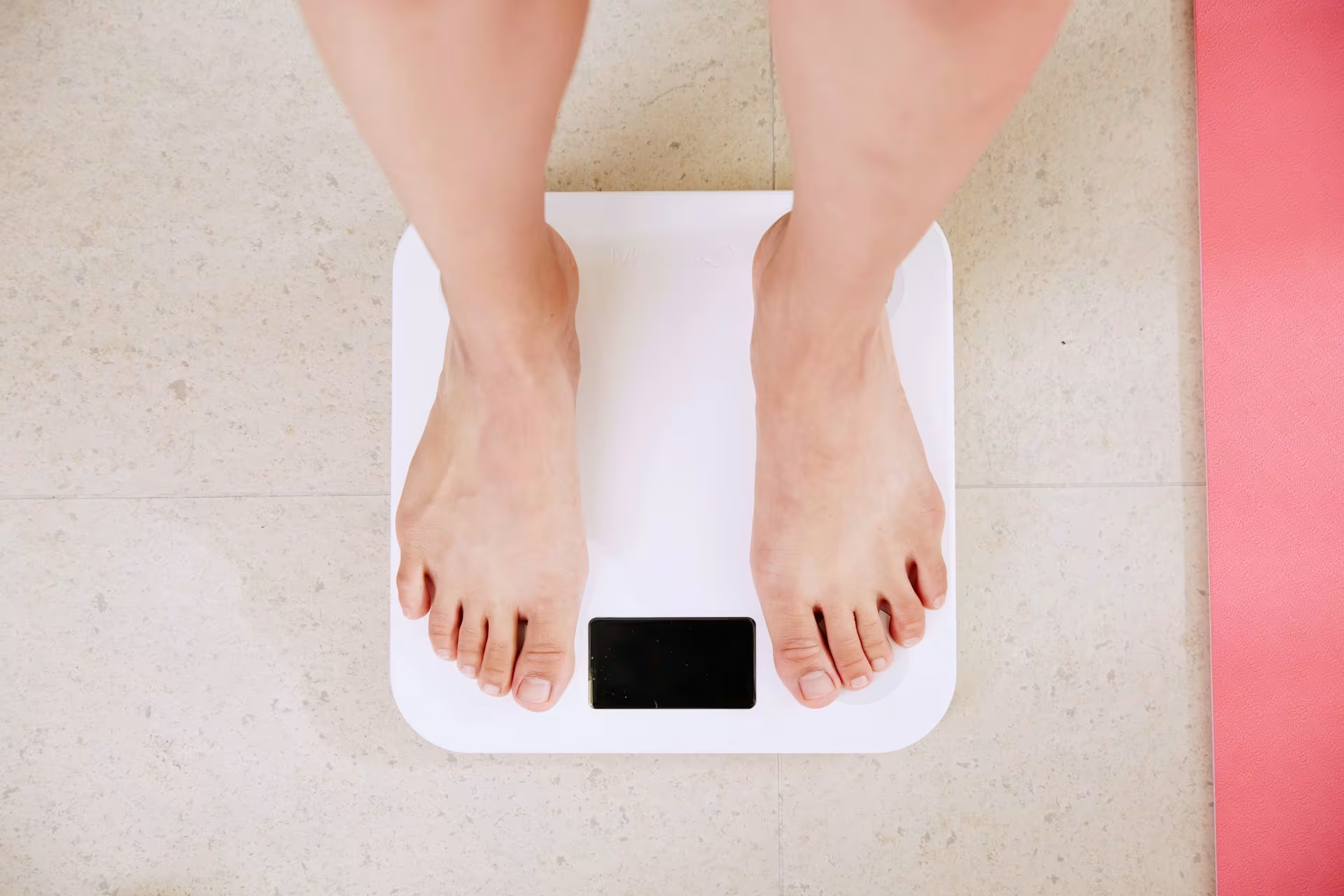Weight loss can be a challenging journey that requires determination, knowledge, and the right approach.
In Singapore’s bustling urban environment, with its diverse food culture and busy lifestyles, managing weight effectively requires strategies tailored to local conditions and needs. This comprehensive guide combines medical expertise, practical advice, and sustainable approaches to help you achieve your weight loss goals in Singapore.
Understanding the Fundamentals of Weight Loss
The Caloric Deficit Principle
The primary reason many people struggle with weight loss is that their bodies remain in “caloric excess” rather than “caloric deficit.” To lose weight effectively, you need to consume fewer calories than your body expends.
A caloric deficit occurs when your energy intake (the food you eat) is less than the energy you use throughout the day.
Read more: Non-Surgical Fat Reduction: Treatments, Benefits, and Risks
This forces your body to use stored fat for energy, resulting in weight loss. Conversely, when you consume more calories than you burn, your body stores the excess as fat, leading to weight gain.
Daily Caloric Requirements for Singaporeans
The average adult male in Singapore needs approximately 2,200 calories daily to maintain weight, while the average adult female requires about 1,800 calories. These requirements vary based on:
- Age
- Gender
- Height
- Weight
- Activity level
- Metabolism
If you have a sedentary job, you’ll need fewer calories than someone who is physically active throughout the day.
Using a calorie calculator that factors in your specific measurements and activity level can provide a more accurate estimate of your daily energy needs.
Common Misconceptions About “Healthy Eating”
Many people believe they’re eating healthily but still struggle to lose weight. This often stems from misconceptions about what constitutes a healthy diet.
Consider this example of a seemingly “healthy” Subway meal:
| Food Item | Energy (kcal) |
|---|---|
| Chicken sandwich with cheese & mayo | 437 |
| Regular Coke (300ml) | 139 |
| Chocolate chip cookie | 209 |
| Peanut butter cookie | 216 |
| Total | 1,001 |
This single meal accounts for more than half of the daily caloric requirement for most adults. By making simple substitutions, you can dramatically reduce the calorie count:
| Food Item | Energy (kcal) |
|---|---|
| Chicken sandwich with honey mustard | 323 |
| Coke Zero | 0 |
| Chocolate chip cookie | 209 |
| Total | 532 |
This simple change cuts 469 calories, equivalent to about 46g of fat. Over a month, consistent changes like this could lead to approximately 1.3kg of weight loss, and over a year, potentially more than 15kg!
Effective Strategies for Weight Loss in Singapore
1. Make Smart Food Substitutions
Rather than creating entirely new meal plans, which can be difficult to maintain, focus on removing high-calorie foods from your normal diet. Here are some effective substitutions:
| Instead of | Replace with | Calories Saved |
|---|---|---|
| Sandwich with cheese (317 kcal) | Sandwich without cheese (278 kcal) | 39 kcal (4g fat) |
| 1 tbsp mayonnaise (107 kcal) | 2 tsp mustard (7 kcal) | 100 kcal (10g fat) |
| Regular Coke (201 kcal) | Coke Zero (0 kcal) | 201 kcal (20g fat) |
| Latte with milk (300 kcal) | Americano without sugar (0 kcal) | 300 kcal (30g fat) |
2. Focus on Sustainable Changes
You don’t have to give up your favorite foods completely. Instead, cut down your total caloric intake by making small sacrifices regularly.
These modest changes allow occasional indulgences while still maintaining a caloric deficit.
Read more: The Ultimate Guide to HIFU Treatment in Singapore
Small changes consistently maintained over time lead to significant results. Removing milk and sugar from your daily coffee, for example, could potentially lead to losing close to 1kg a month or 12kg in a year.
3. Increase Physical Activity
Physical activity is essential for effective weight management as it burns calories consumed throughout the day. Aim for:
- 150-300 minutes of moderate-intensity aerobic activity per week
- Muscle-strengthening activities at least twice weekly
Moderate-intensity activities raise your heart rate to 64-75% of your maximum heart rate (calculated as 220 minus your age). Examples include brisk walking, recreational badminton, leisure cycling, and doubles tennis.
Incorporate more movement into your daily routine:
- Take stairs instead of elevators
- Get off public transport one or two stops early
- Park further from your destination
- Do household chores actively
4. Build Strength for Long-term Success
Strength training provides additional weight loss benefits by:
- Improving bone and muscle strength
- Increasing muscle mass, which boosts your resting metabolic rate
- Enhancing your body’s ability to burn calories even at rest
Aim to complete 2-3 sets of 8-12 repetitions for each exercise, targeting all major muscle groups (legs, hips, abdomen, back, chest, shoulders, and arms).
5. Eat Regular, Balanced Meals
Skipping meals often leads to increased snacking or binge eating later. Instead:
- Start your day with a protein-rich breakfast
- Include fiber-rich foods that keep you feeling full longer
- Choose whole grains over refined carbohydrates
- Prepare healthy snacks to avoid hunger-driven poor choices
- Stay hydrated with water rather than sugary drinks
The Role of Medical Intervention in Weight Loss
When to Consider Weight Loss Medications
While diet and exercise form the foundation of healthy weight loss, medical interventions can be beneficial in certain circumstances. Some doctors in Singapore may recommend weight loss medications for patients who:
- Have struggled with conventional weight loss methods
- Need initial motivation through faster initial results
- Have reached a weight loss plateau
- Have medical conditions related to weight
The journey to sustained weight loss is typically divided into two phases:
Phase 1: Active Weight Loss This initial phase involves significant dietary restrictions and increased exercise. Weight loss medications may help manage hunger pangs and provide rapid results, which can boost motivation.
Phase 2: Weight Maintenance Once you’ve achieved your target weight, the focus shifts to maintaining a caloric balance. Medications are typically reduced or discontinued as you transition to sustainable lifestyle habits.
Types of Weight Loss Treatments in Singapore
1. Medical Consultations A comprehensive assessment including body examination, BMI analysis, waist circumference measurement, and blood pressure assessment.
2. Weight Loss Medications
- Pills: Act as appetite suppressants, metabolism boosters, or fat blockers
- GLP-1 Injections: Mimic hormones that regulate appetite and glucose metabolism
3. Non-Invasive Fat Reduction Treatments For example, CoolSculpting uses cooling technology to remove stubborn fat in specific areas.
4. Bariatric Surgery Reserved for cases of severe obesity or when other methods have failed.
Read more: Non-Invasive Body Contouring Treatments in Singapore
Incorporating Weight Management into Singaporean Lifestyle
Navigating Local Food Culture
Singapore’s rich food culture presents both challenges and opportunities for weight management:
- At hawker centers, opt for soup-based dishes like yong tau foo or sliced fish soup
- Choose plain rice over flavored rice, or better still, brown rice
- Avoid dishes with coconut milk or cream (such as curry or laksa)
- Remove visible fat from meat dishes
- Request less oil when ordering stir-fried dishes
Practical Tips for Busy Singaporeans
- Meal prep during weekends to avoid unhealthy takeout during busy workdays
- Carry healthy snacks to avoid vending machine temptations
- Use apps to track calorie intake and physical activity
- Utilize Singapore’s extensive park connector network for walking or cycling
- Join community fitness activities in neighborhood parks
FAQ About Weight Loss in Singapore
How much weight can I realistically lose per week?
A safe and sustainable rate of weight loss is 0.5-1kg per week. Faster weight loss may lead to muscle loss, nutritional deficiencies, and increased likelihood of regaining weight.
What BMI is considered healthy in Singapore?
For Asians, including Singaporeans, a BMI between 18.5 and 22.9 is considered healthy. A BMI of 23 to 27.4 is considered overweight, while a BMI of 27.5 or higher indicates obesity.
Do I need a doctor’s help to lose weight?
Not everyone needs medical supervision for weight loss. However, consulting a healthcare professional is advisable if you:
- Have existing medical conditions like diabetes or hypertension
- Have a BMI above 27.5
- Have tried multiple weight loss methods without success
- Experience unexplained weight gain
- Plan to use weight loss medications
How much does a weight management program cost in Singapore?
Costs vary widely depending on the type of program:
- Doctor consultations: S$38-70
- Weight loss medications: From S$1.20 per tablet for pills; from S$130 per injection pen
- Nutritionist counseling: Approximately S$100 per session
- Non-invasive treatments: Pricing depends on the treatment area and number of sessions
Can I lose weight without exercise?
While it’s technically possible to lose weight through diet alone, incorporating exercise provides numerous benefits:
- Accelerates weight loss
- Preserves lean muscle mass
- Improves cardiovascular health
- Enhances mood and energy levels
- Helps maintain weight loss long-term
What foods should I avoid when trying to lose weight in Singapore?
Rather than completely avoiding foods, focus on moderating high-calorie items:
- Sweetened beverages (bubble tea, sugary coffee drinks)
- Fried foods (goreng pisang, fried carrot cake)
- Dishes with coconut milk (laksa, curry)
- Processed foods high in refined carbohydrates
- Alcoholic beverages
How do I maintain weight loss after reaching my goal?
Maintaining weight loss requires:
- Continued awareness of caloric intake
- Regular physical activity (at least 150 minutes weekly)
- Regular self-monitoring (weigh yourself weekly)
- Building a support system
- Planning for challenges like holidays or special occasions
- Making gradual adjustments rather than returning to previous habits
Does traditional Chinese medicine (TCM) help with weight loss?
Some TCM practices may complement conventional weight loss approaches, but research on their effectiveness is limited.
Consult qualified practitioners if you’re interested in this approach, and always inform your regular doctor about any herbs or supplements you’re taking.
How does sleep affect weight loss?
Poor sleep can hinder weight loss by:
- Increasing hunger hormones (ghrelin)
- Decreasing satiety hormones (leptin)
- Reducing energy for physical activity
- Increasing stress hormones that promote fat storage
Aim for 7-8 hours of quality sleep nightly to support weight management.
Conclusion
Weight loss is a personal journey that requires commitment, knowledge, and the right strategies. By understanding the science of caloric deficit, making sustainable dietary changes, increasing physical activity, and seeking appropriate support when needed, Singaporeans can achieve their weight loss goals effectively and maintain results long-term.
Remember that successful weight management isn’t about pursuing quick fixes or extreme measures. Instead, focus on consistent, moderate changes that you can maintain throughout your life. The small decisions you make daily—choosing water over soda, taking the stairs instead of the elevator, or opting for brown rice instead of white—ultimately determine your success.
By combining the best practices outlined in this guide with Singapore’s excellent healthcare resources and an understanding of local food culture, you can navigate your weight loss journey with confidence and achieve lasting results.

